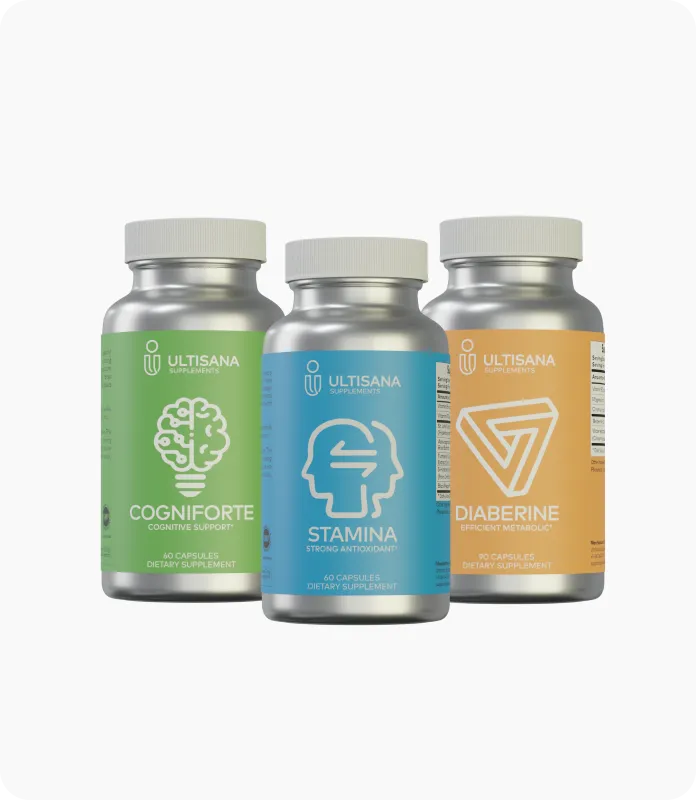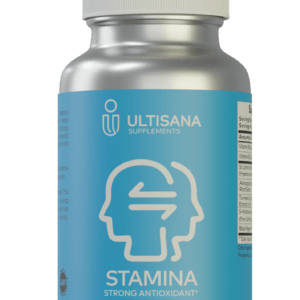Caffeine – Benefits, Risks & Everything You Need To Know
Caffeine is the most widely consumed psychoactive substance in the world. Whether it’s in your morning coffee, tea, or energy drink, caffeine plays a key role in daily routines for millions of people globally. This powerful stimulant not only boosts energy but also has a wide range of health benefits and effects on the body and mind.
In this comprehensive guide, we will explore everything you need to know about caffeine, from its origins and historical use to its various health benefits, potential risks, and common ways to consume it. If you’ve ever wondered about how caffeine works, how much is safe to consume, or if it has any long-term effects on health, this blog will provide you with all the information you need.
What is Caffeine?
Caffeine is a natural stimulant most commonly found in coffee, tea, and certain plants like kola nuts and cacao. It acts on the central nervous system, temporarily increasing alertness, reducing fatigue, and enhancing focus. Caffeine is consumed in a variety of beverages and products, with coffee being one of the most popular sources. It works by blocking the action of adenosine, a brain chemical that promotes sleep and relaxation, which in turn leads to increased energy and wakefulness.
The History of Caffeine
Caffeine has a long history that dates back centuries. The consumption of caffeinated beverages can be traced back to ancient cultures. Coffee, for example, was first discovered in Ethiopia, where legend has it that a goat herder named Kaldi discovered the stimulating effects of coffee berries after noticing his goats becoming unusually energetic after eating the berries.
Tea has been consumed for thousands of years in China and Japan, with caffeine being one of its most recognized effects. Over time, caffeine gained popularity across the world, especially in Europe and the Americas, where it became an integral part of daily life and culture.
The Health Benefits of Caffeine
Caffeine is more than just a pick-me-up. Numerous studies have revealed various health benefits when consumed in moderation. Here are some of the most well-known advantages of caffeine:
1. Increased Alertness and Focus
Caffeine is best known for its ability to boost alertness. It stimulates the central nervous system, helping you stay awake, focused, and productive. Caffeine blocks adenosine receptors in the brain, which promotes a feeling of wakefulness and improved mental focus.
2. Improved Physical Performance
Caffeine is often used by athletes to enhance physical performance. It increases adrenaline levels in the body, which can improve endurance, strength, and stamina during exercise. Caffeine also helps break down fat cells, allowing the body to use fat for energy during exercise, making it a popular pre-workout supplement.
3. Enhanced Cognitive Function and Memory
Some studies suggest that caffeine can enhance cognitive performance, particularly in tasks involving memory, learning, and concentration. By stimulating the brain, caffeine can improve reaction time and decision-making skills, making it a helpful tool for studying and other cognitive tasks.
4. Mood Enhancement
Caffeine may also have mood-boosting effects. It is believed to increase the production of certain neurotransmitters, such as dopamine and serotonin, which are associated with improved mood and well-being. Many people experience feelings of increased happiness, energy, and reduced feelings of depression after consuming caffeine.
5. Fat Burning and Weight Loss
Caffeine can aid in fat loss by increasing metabolism and promoting the breakdown of fat cells. It is commonly included in weight loss supplements for its thermogenic properties, which help the body burn more calories. Additionally, caffeine can suppress appetite for a short period, contributing to reduced food intake.
6. Reduced Risk of Certain Diseases
Studies have shown that coffee consumption is linked to a reduced risk of several chronic diseases. Moderate coffee intake, in particular, has been associated with a lower risk of type 2 diabetes, Parkinson’s disease, and certain types of cancer, including liver and colorectal cancer. While caffeine may contribute to some of these effects, research suggests that the health benefits are primarily due to the many bioactive compounds found in coffee itself. These compounds, including antioxidants and anti-inflammatory agents, help protect cells from damage and reduce the risk of developing chronic conditions.
7. Improved Liver Health
Moderate coffee and caffeine consumption has been shown to have protective effects on the liver. Drinking coffee regularly can help reduce the risk of liver diseases such as cirrhosis and fatty liver disease. It may also help lower the risk of liver cancer in those with existing liver conditions.
Caffeine Sensitivity and Tolerance
Caffeine sensitivity varies from person to person, largely due to genetics. Some people metabolize caffeine quickly, while others are more sensitive and feel its effects for a longer period. Over time, regular caffeine consumers may develop a tolerance, requiring higher amounts to achieve the same effects.
For people who are sensitive to caffeine, it’s important to limit intake to avoid side effects like jitteriness or anxiety. Understanding your personal tolerance is key to maximizing the benefits of caffeine while minimizing any discomfort.
How to Use Caffeine
Caffeine is widely available in a variety of forms. The most common sources include:
- Coffee: Coffee is one of the most popular sources of caffeine worldwide, with varying levels of caffeine depending on the type of coffee and brewing method.
- Tea: Tea, including both black and green varieties, contains caffeine, though typically in lower amounts than coffee. It also provides L-theanine, an amino acid that helps promote calmness and focus. L-theanine works by enhancing attention while counteracting some of the overstimulating effects of caffeine, such as anxiety.
- Energy Drinks: These beverages are designed to provide a quick energy boost and typically contain caffeine along with other ingredients like sugar, taurine, and B vitamins.
- Caffeine Pills: Available in over-the-counter form, caffeine pills provide a concentrated dose of caffeine without the added calories or sugar of drinks.
- Supplements: Caffeine is often included in weight loss and performance-enhancing supplements, especially in pre-workout formulas.
Dosage and Safety
While caffeine is generally considered safe for most people when consumed in moderation, it’s important to be aware of your body’s tolerance and the potential for side effects. The recommended daily limit for most adults is around 400 milligrams of caffeine, which is roughly equivalent to four 8-ounce cups of coffee.
Consuming too much caffeine can lead to unwanted side effects, such as:
- Insomnia
- Jitters or anxiety
- Increased heart rate
- Digestive issues
- Headaches
It’s important to listen to your body and adjust your caffeine intake if you experience any adverse effects. Pregnant women, individuals with heart conditions, and those sensitive to caffeine should consult a healthcare provider to determine the right amount for their needs.
Potential Side Effects and Risks
While caffeine is generally safe, there are some potential risks to consider:
- Insomnia and Sleep Disturbances: Consuming caffeine late in the day can interfere with sleep and cause insomnia, as its stimulating effects can last for several hours.
- Addiction and Dependence: Regular caffeine consumption can lead to dependence, with withdrawal symptoms such as headaches, fatigue, and irritability if caffeine intake is suddenly reduced.
- Increased Anxiety: High doses of caffeine can cause heightened anxiety, jitteriness, and nervousness, especially in individuals who are sensitive to stimulants.
- Stomach Issues: Caffeine can irritate the stomach lining and may cause digestive issues, including acid reflux or gastritis, in some individuals.
Caffeine’s Effect on Sleep
Caffeine is a powerful stimulant, and it can disrupt sleep if consumed too late in the day. It is recommended to avoid caffeine after 2 PM or at least 6 hours before bedtime to prevent interference with the natural sleep cycle. Caffeine can also cause sleep fragmentation, leading to lighter and less restorative sleep.
Caffeine and Mental Health
Caffeine has both positive and negative effects on mental health. While it can improve alertness and mood, it can also exacerbate anxiety, especially in those prone to anxiety disorders. People with ADHD may also find that caffeine helps with focus, but it’s important to consult a doctor before using caffeine as a treatment.
Debunking Common Myths About Caffeine
Myth 1: Caffeine dehydrates you.
Fact: It is a mild diuretic, but it doesn’t cause significant dehydration in moderate amounts.
Myth 2: Caffeine stunts growth.
Fact: There’s no evidence to support this claim.
Myth 3: Caffeine causes heart problems.
Fact: For most people, caffeine in moderate amounts is safe and does not affect heart health. However, individuals with certain heart conditions, such as arrhythmias, may be more sensitive to caffeine and should consult their doctor.
Caffeine Withdrawal
When you stop consuming caffeine, you may experience withdrawal symptoms such as headaches, fatigue, and irritability. These symptoms can last anywhere from a few days to a week. Reducing caffeine intake gradually can help ease the transition.
Caffeine and Sports Performance
Caffeine is a well-known performance enhancer in sports. It has been shown to improve endurance, strength, and reaction time. Athletes often use caffeine before workouts to enhance their physical performance, as it stimulates the nervous system and breaks down fat for energy.
Global Caffeine Consumption
Caffeine consumption varies globally. In Italy, coffee culture revolves around espresso, while Japan is known for its tea ceremonies. The U.S. has a strong coffee culture, with Starbucks leading the way. Around the world, coffee and tea serve as social rituals, from Brazilian cafes to British afternoon tea.
Alternatives to Caffeine
For those who want to avoid caffeine, there are several alternatives to boost energy:
- Adaptogenic Herbs: Herbs like ginseng, Rhodiola rosea, and Maca root can enhance energy levels without the crash associated with caffeine.
- Decaffeinated Coffee & Tea: If you enjoy the ritual but want to cut down on caffeine, decaf options offer a milder alternative.
Caffeine and Chronic Conditions
For individuals with conditions like heart disease or diabetes, caffeine may have different effects. It can elevate heart rate and blood pressure, potentially posing risks for those with cardiovascular conditions. Always check with a healthcare provider to determine how much caffeine is safe for your specific health needs.
Caffeine From Supplements
In addition to coffee and tea, some dietary supplements also provide caffeine to support energy, focus, and performance. These supplements often use forms like caffeine anhydrous, offering a convenient way to boost alertness. However, the caffeine content can sometimes be higher than in a typical cup of coffee, so it’s important to use them responsibly. When taken in moderation, caffeine from supplements can be an effective part of an active lifestyle.
How Long Does Caffeine Take to Work?
Caffeine typically takes about 15 to 45 minutes to take effect, depending on how quickly it is absorbed into the bloodstream. The peak effects of caffeine are usually felt within 30 minutes to an hour after consumption. However, its effects can last for several hours, depending on your sensitivity to caffeine and how much you consume.
FAQs
What Is Caffeine And How Does It Work?
It is a natural stimulant that blocks adenosine receptors in the brain, promoting wakefulness and enhancing focus and energy.
What Are The Health Benefits Of Caffeine?
It offers several health benefits, including increased alertness, improved cognitive function, better physical performance, mood enhancement, and a reduced risk of certain diseases.
How Much Caffeine Is Safe To Consume Daily?
The recommended daily limit is 400 milligrams (about four 8-ounce cups of coffee). However, individual tolerance may vary.
Can Caffeine Improve Athletic Performance?
Yes, it can enhance endurance and strength by increasing adrenaline levels and promoting the use of fat for energy during exercise.
Is Caffeine Bad For Your Health?
In moderation, it is generally safe. Excessive consumption can lead to side effects like anxiety, insomnia, and digestive issues.
Can Caffeine Help With Weight Loss?
It can boost metabolism, increase fat burning, and suppress appetite for a short period, making it useful for weight management.
How Long Does Caffeine Take To Work?
Caffeine typically takes 15 to 45 minutes to take effect, with peak effects felt within 30 minutes to an hour.
What Are The Side Effects Of Too Much Caffeine?
Excessive intake can cause jitters, anxiety, digestive issues, and insomnia, among other symptoms.
Can I Develop A Dependence On Caffeine?
Yes, regular use can lead to dependence, and sudden withdrawal can cause headaches, fatigue, and irritability.
Is Caffeine Safe During Pregnancy?
Pregnant women should limit the intake to no more than 200 milligrams per day to avoid potential risks to the fetus.
Conclusion
Caffeine is a powerful and widely used stimulant that offers a range of health benefits, from increased energy and improved cognitive function to enhanced physical performance and disease prevention. Whether you’re looking for a quick pick-me-up or a more sustainable energy boost, caffeine can be a valuable tool in your daily routine.
However, like anything, moderation is key. Too much caffeine can lead to negative side effects, so it’s important to find the right balance for your body. By understanding how caffeine works and how to use it responsibly, you can maximize its benefits while minimizing any potential risks.
About Us
Ultisana Supplements is a family-owned wellness company focused on community and culture as key pillars of health. Our unique, natural formulas, trusted by doctors in Central America for years, are designed to target health concerns with respect for traditional remedies while being backed by science.

Our Products



